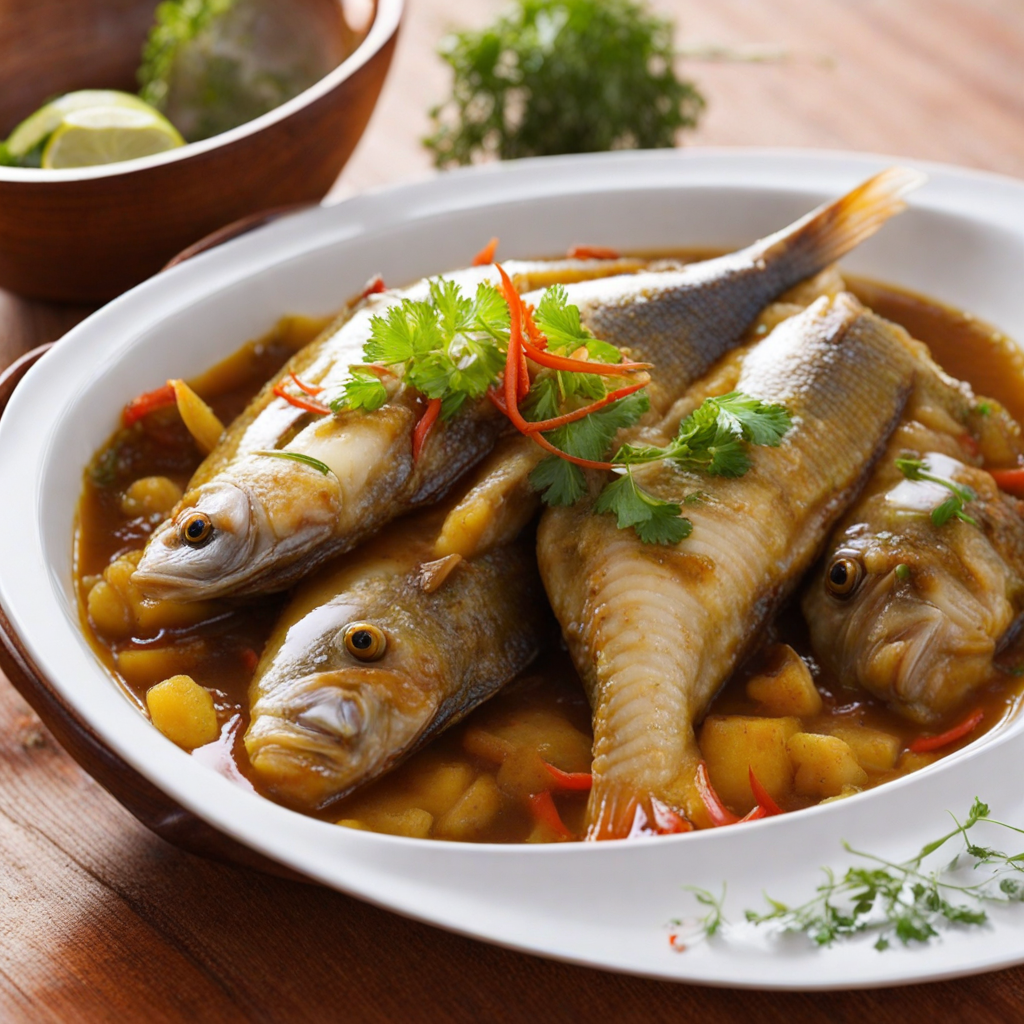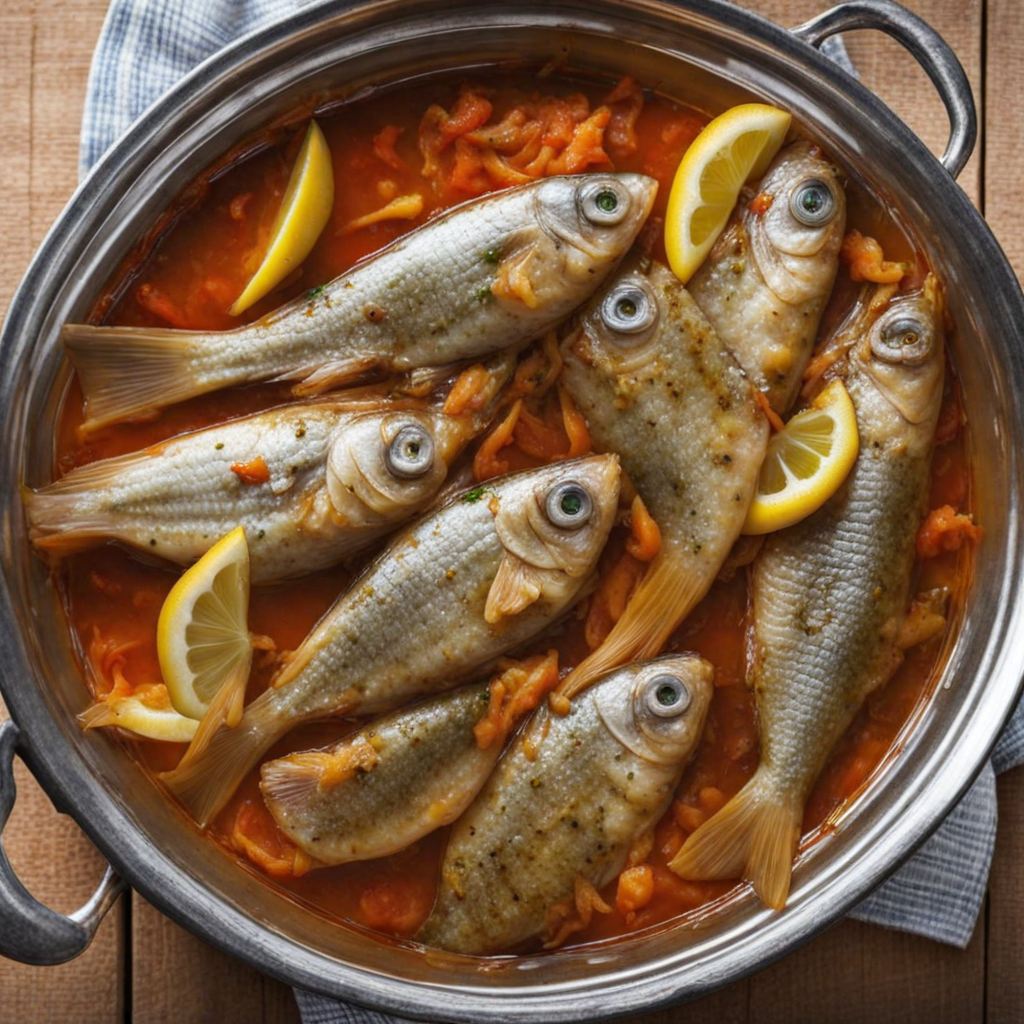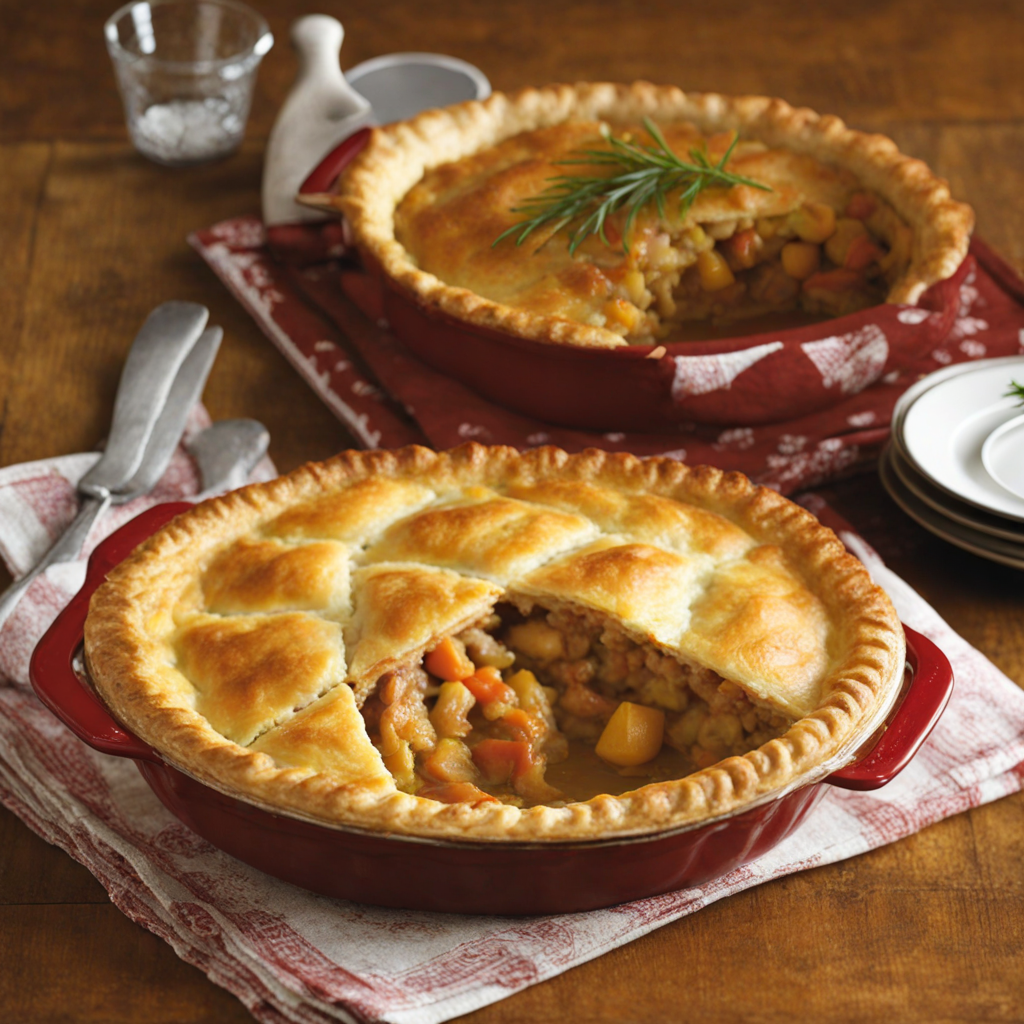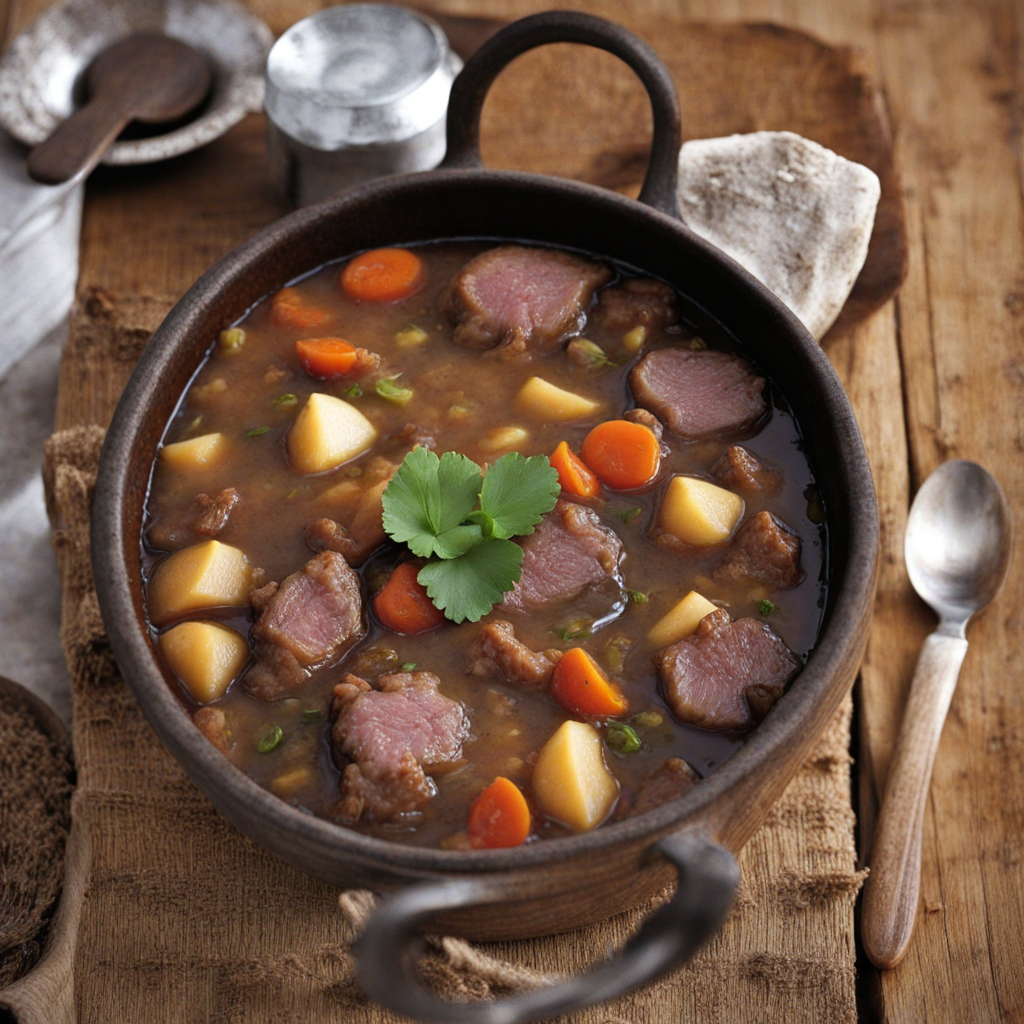Pickled fish
Pickled fish, a beloved dish in South Africa, offers a unique blend of flavors that tantalize the taste buds. This dish typically features firm white fish, such as hake or snoek, which is marinated in a vibrant mixture of vinegar, sugar, and a medley of spices. The fish is poached until tender and then submerged in the pickling liquid, allowing it to absorb the tangy and slightly sweet essence. This method not only enhances the fish's natural flavors but also preserves it, making it a popular choice for festive occasions, especially during Easter celebrations. The spices used in pickled fish are what truly set this dish apart. A combination of onions, garlic, and warm spices like turmeric, coriander, and black pepper creates a fragrant base that complements the fish beautifully. The dish often includes a hint of chili for a subtle kick, making each bite an exciting explosion of flavors. The vibrant yellow hue, primarily from the turmeric, adds visual appeal, making it a striking centerpiece on any table. Served chilled, pickled fish offers a refreshing contrast to the warm climate of South Africa, making it a perfect dish for summer gatherings. Enjoying pickled fish is an experience in itself, often served with traditional sides like hot cross buns or crusty bread, which help to balance the acidity of the dish. The combination of tender fish and the zesty marinade creates a delightful harmony that leaves a lasting impression. Whether enjoyed as a main dish or a delightful appetizer, pickled fish stands as a testament to South African culinary traditions, inviting food lovers to savor a taste that is both unique and unforgettable.
How It Became This Dish
The History of Pickled Fish in South Africa #### Origins and Early Influences Pickled fish, a beloved dish in South Africa, particularly among the Cape Malay community, has a rich history that mirrors the diverse cultural tapestry of the nation. The origins of pickled fish can be traced back to the early maritime activities in the Cape of Good Hope, a strategic point for sailors and traders from Europe, Asia, and Africa. The practice of pickling fish is believed to have come to South Africa with the Dutch settlers in the 17th century. The seafaring tradition of preserving fish through pickling was essential for long voyages, allowing sailors to extend the shelf life of their catch. Pickling, which involves soaking fish in a brine solution or vinegar, not only preserved the fish but also imparted a distinctive flavor that would become characteristic of the dish. #### Cultural Significance Pickled fish holds a special place in the hearts of many South Africans, particularly during the Easter season. For the Cape Malay community, the tradition of serving pickled fish during this time is deeply rooted in their religious and cultural practices. As a predominantly Muslim group, the Cape Malay adhere to the dietary restrictions of Islam, which dictate the consumption of fish rather than meat during Lent. This practice led to the popularization of pickled fish as a festive dish, served alongside other traditional foods. The preparation of pickled fish varies from family to family, with recipes often passed down through generations. The dish typically features firm, white fish such as snoek or hake, which is marinated in a mix of vinegar, sugar, onions, and a blend of spices that may include turmeric, mustard seeds, and coriander. The combination of sweet, sour, and spicy flavors creates a complex and appealing taste profile that has delighted taste buds for centuries. #### Evolution Over Time As South Africa evolved through colonialism and the interplay of various cultures, so too did the dish. The Cape Malay community, having roots in Indonesia and other parts of Asia, infused their culinary practices with local ingredients and flavors. The incorporation of spices like curry powder and chili reflects the melding of African, Asian, and European influences. In the 19th century, with the arrival of British settlers, the culinary landscape of South Africa further diversified. The British brought their own food preservation techniques, including the use of vinegar and spices. This exchange of ideas and practices enriched the preparation of pickled fish, leading to variations that blended the spices and flavors of different cultures. One notable evolution in the dish's history occurred during the apartheid era, when food became a symbol of cultural identity and resistance. For many communities, including the Cape Malay, preserving traditional dishes like pickled fish became a way to assert their heritage in the face of oppression. Food played a crucial role in maintaining a sense of cultural belonging, as families gathered to prepare and share meals that connected them to their ancestors. #### Modern Interpretations In contemporary South Africa, pickled fish has transcended its traditional roots to become a popular dish enjoyed by diverse communities across the country. While it remains a staple during Easter, many South Africans now savor pickled fish year-round, often served as part of a meze platter or as a filling for sandwiches. Its versatility makes it a favored choice for both casual gatherings and festive occasions. The modern culinary scene has also embraced pickled fish, with chefs experimenting with new ingredients and techniques. Contemporary variations might feature unusual fish or innovative marinades, showcasing the dish's adaptability. Some restaurants even serve pickled fish as an appetizer, pairing it with artisanal breads and local cheeses, which highlights its evolution from a simple preservation method to a gourmet offering. #### Pickled Fish in a Global Context The global appreciation for pickled fish is reflected in the rise of food tourism and culinary exploration. As South Africa's rich and diverse cuisine gains international recognition, traditional dishes like pickled fish are increasingly featured in culinary festivals and events abroad. This exposure has not only brought South African flavors to a broader audience but has also sparked interest in the stories behind these dishes. Moreover, the international trend of fermentation and pickling in contemporary cuisine has further propelled the popularity of pickled fish. As health-conscious consumers seek out probiotic-rich foods, the age-old practice of pickling has found new relevance. This aligns seamlessly with the growing interest in traditional and artisanal food preparation methods. #### Conclusion Pickled fish is more than just a dish in South Africa; it is a culinary symbol of resilience, cultural identity, and the harmonious blending of diverse traditions. From its origins among the sailors of the 17th century to its status as a festive staple in the Cape Malay community, pickled fish has undergone significant transformation while remaining rooted in its cultural significance. As South Africa continues to celebrate its rich culinary heritage, dishes like pickled fish serve as a reminder of the country’s historical journeys and the stories embedded within its food. Whether enjoyed during the Easter season or as an everyday delight, pickled fish remains a cherished part of South Africa’s gastronomic landscape—a testament to the enduring legacy of its diverse peoples and their culinary traditions.
You may like
Discover local flavors from South Africa







